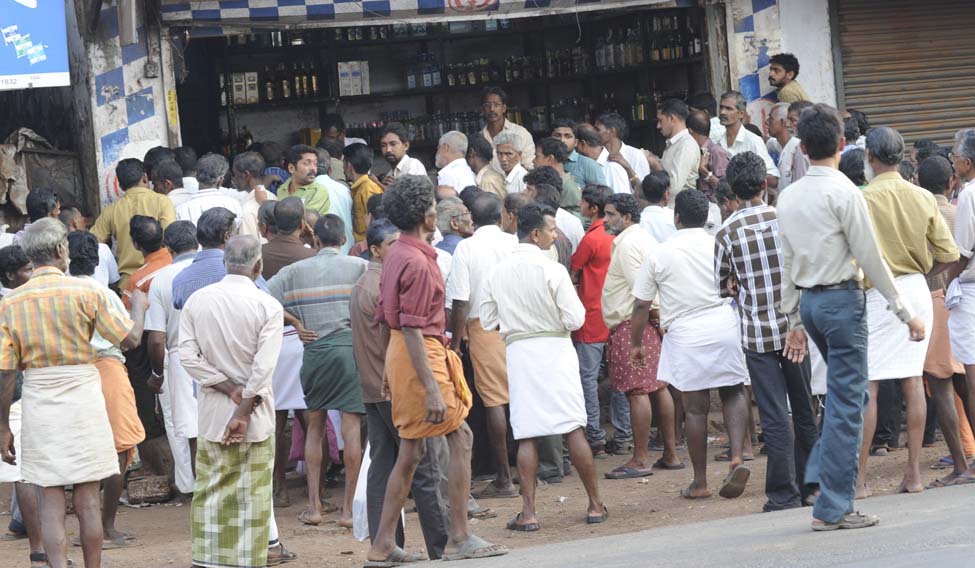Tipplers in Kerala have been furious at the government and the courts for some time, thanks to the harsh treatment meted out to them. Now, the Madya Upabhokthru Samrakshana Samithi (Liquor Consumers Protection Council), a body of liquor consumers in the state, has launched a campaign to protect their interests.
This, after the Supreme Court banned bars and liquor outlets within 500 metre of the state and national highways. The MUSS held its first meeting in Payyanur in Kannur district of Kerala on April 20 and would continue to hold meetings till its demands are met. The meeting called upon the government to look at ingenious ways of marketing liquor made from mango, jackfruit and cashew, which are abundant in Kerala.
Said MUSS convenor M. Damodaran to THE WEEK, “The government cannot deny consumers the right to drink liquor. The people who consume liquor in Kerala are treated worse than animals by society and the government. What wrong have we done to be ridiculed in this manner? The government increases the price of liquor every now and then, as it knows that nobody will raise objections.”
He said that people should not be made to stand in long queues and face humiliation to get a bottle of liquor. “Around 80 lakh people in Kerala consume liquor, but there is no proper facility for them to buy it. A significant amount of the state’s revenue comes from liquor sale. We are not criminals. We also have human rights,” said Damodaran.
He said that his organisation would further strengthen the campaign against the liquor haters of Kerala. A memorandum has been submitted to state minister G. Sudhakaran, who, Damodaran said, has promised to look into the concerns. The MUSS wants the government to take measures to develop ingenious technology, wherein liquor can be made from fruits like mango, jackfruit or cashew. “Just like how Feni is produced in Goa. Such a decision by the government will help generate jobs for thousands of unemployed people in Kerala who are already affected by the ban on liquor in the state. Why can’t we emulate Goa?” asked Damodaran.
Filmmaker Nadirsha said that it was difficult to strictly impose liquor ban. He said to THE WEEK, “When there is too much food in one’s house, the craving towards food is less. Likewise, if liquor is available in abundance, the craving for liquor will be less. If someone wants to drink, no matter what, he will find a bottle to gulp somehow or the other. So, what’s the purpose of regulating liquor consumption? Sadly, the ban on liquor has made young people drift to narcotic drugs. There is now a considerable increase in the use of such drugs.”
In 2015, the United Democratic Front government led by Oommen Chandy had closed down many bars across the state and mooted the idea of a gradual prohibition. Towards this end the government had proposed closing down 10 per cent of liquor outlets every year to achieve total prohibition in 10 years. Peeved, the body of bar owners in the state appealed to the Supreme Court to overturn the ban. But the court dismissed their petition, and upheld the state’s decision that bars would be allowed only in five-star hotels. Kerala is one of the biggest liquor consumption states in the country, with an average consumption of 10.2 litres per person annually.





